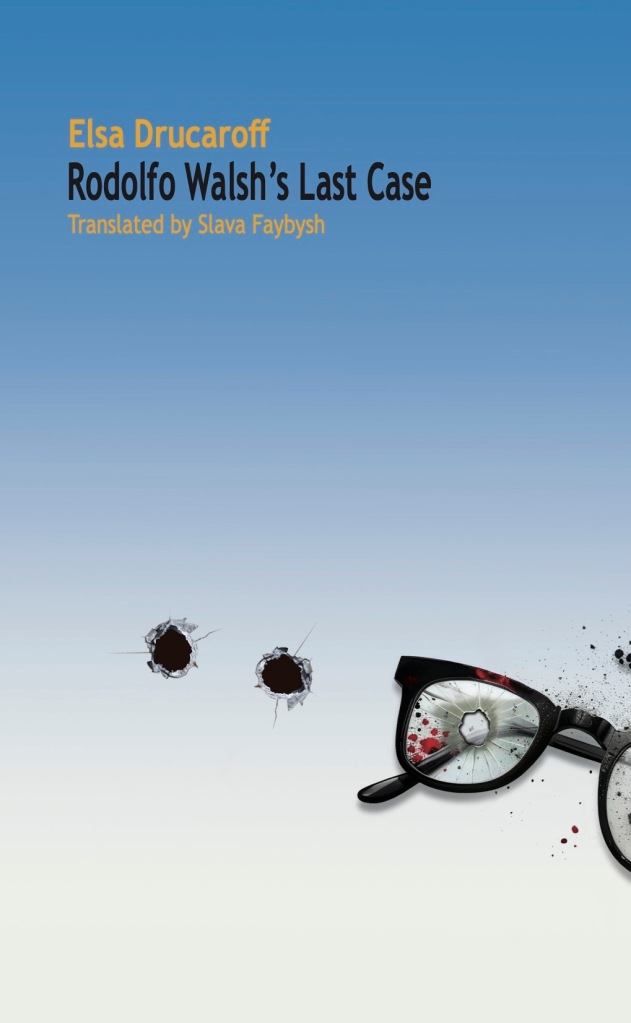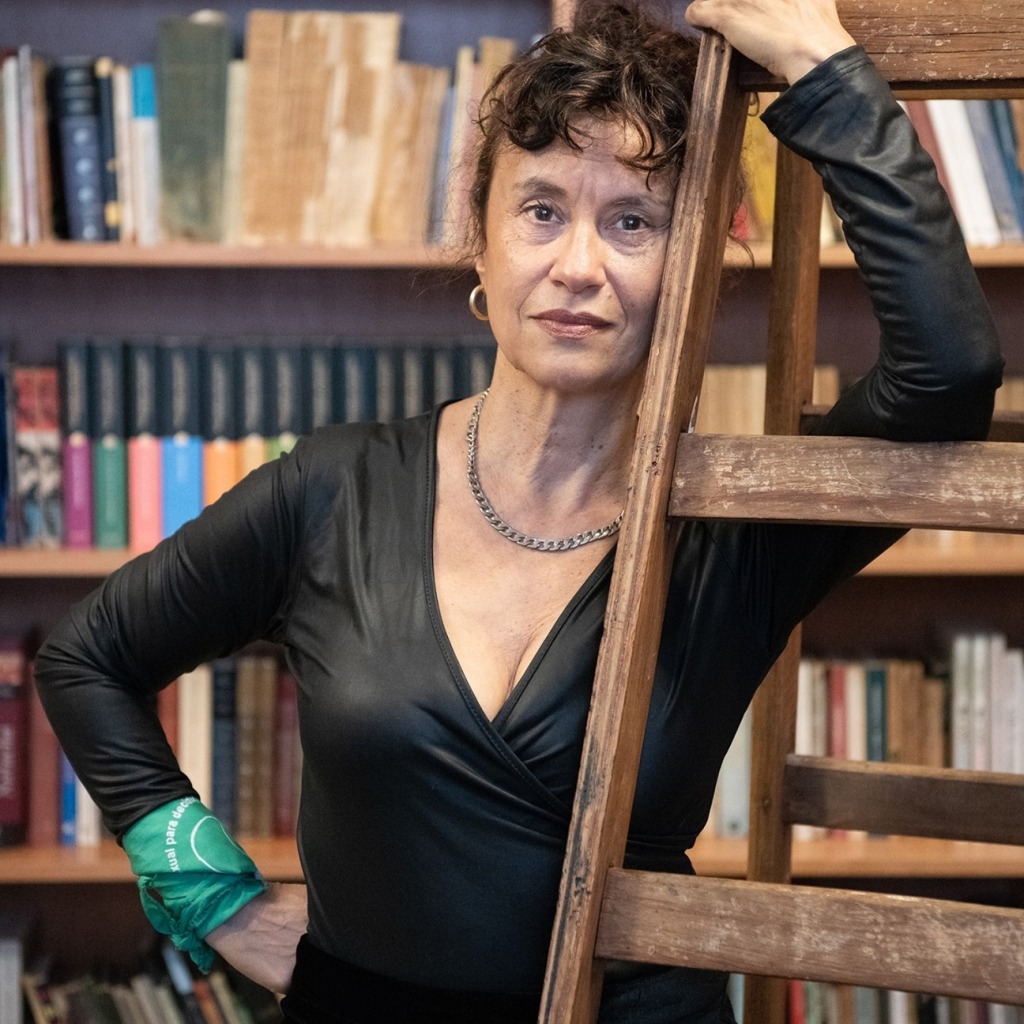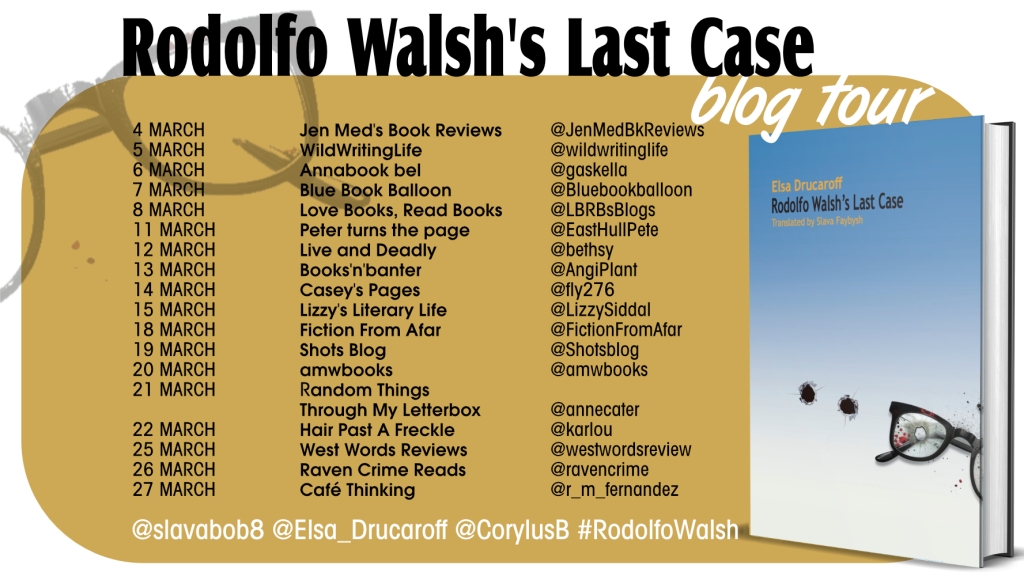
In her first novel translated into English Argentinian writer, Elsa Drucaroff, uses true historical events and imagines a possible scenario in which a father searches for his missing daughter.
The father is Rodolfo Walsh, a well-known and significant figure in Argentina’s politics and literature. Walsh was a prolific writer and journalist credited with founding investigative journalism in Argentina. He was also head of Communications and Intelligence for Montoneros, an Argentine far-left Peronist national liberation movement that originated in Argentina in the 1970s during the dictatorship. Drucaroff’s novel is set in this turbulent time period.
One evening in September 1976 Rodolfo Walsh, his wife Lila, and their colleagues Pablo and Mariana, the founding members of the Clandestine News Agency, a group of people who distributed informative leaflets, gather at the Walsh house. While listening to Radio Colonia, a station that broadcasts news prohibited by the Argentine government, it is announced that 150 armed men surrounded a house in Buenos Aires the morning before. Four people were shot, and the death of the fifth, a woman, was not confirmed. The woman’s name was Maria Victoria Walsh, codename Hilda, better known as Vicki by family and friends. Vicki was Rodolfo’s daughter.
What if Rodolfo Walsh used his characters’ detective skills and journalistic experience to investigate his own daughter’s disappearance? Rodolfo’s frantic efforts to learn the truth about his daughter’s whereabouts after the government’s onslaught against the Monteneros Organisation members—later dubbed “The Battle of Corro Street”—follow. As he talks to witnesses and informants, some of whom say she was captured alive, and others who tell him she was killed, he alternates between feeling hope and despair.
Walsh is the primary focus of the book, which is not surprising given that his name appears in the title. Similar to Stieg Larsson, Rodolfo was a writer as well as an investigative journalist. Both died unexpectedly in their 50s. However, unlike Larsson, Rodolfo was a successful crime writer prior to his death. Operación Masacre, published in 1957, is considered the first historical non-fiction novel and was published before Truman Capote’s In Cold Blood. It blurred the line between fact and fiction, combining literary and journalistic elements.
Drucaroff applies the same technique; however, while her writing style is more journalistic in nature—using brief, punchy sentences—it also has a distinctly noir feel. There’s no room for sentimentality here, despite the subject matter. The reader is given necessary information in a factual, yet descriptive, manner. e.g. “Rodolfo Walsh, head of Communications and Intelligence for Montoneros and founder of ANCLA, the Clandestine News Agency, is sitting in his armchair in his living room, stony-faced behind his glasses.”
Similarly, the novel’s unnamed narrator serves as an observer, speaking to the reader while describing a scene. We become voyeurs as we observe people going about their lives. It creates a sense of isolation, distance and a lingering dread that there’s something simmering beneath the surface. Something bad is about to happen. And it does. Even though we know how the story ends, it’s still shocking. Moreover, it shows that life continued despite the atrocities that occurred.
Rodolfo Walsh’s Last Case is an endless nest of Russian dolls. Just as you think you’ve uncovered the final layer, something piques your interest, and you’re drawn deeper into Argentina’s history. When writing a review, this presents a significant challenge. “Focus on the story Drucaroff conveys in her novel,” you tell yourself. But how can you when it’s grounded in a historically rich, if terrifying, context? This is what good fiction is meant to do. Not only does it entertain, but it also gently guides its reader to explore further and, hopefully, become more informed and enriched in the process.
About the author

Elsa Drucaroff was born and raised in Buenos Aires. She is the author of four novels and two short story collections, in addition to being a prolific essayist. She has published numerous articles on Argentine literature, literary criticism and feminism. Her work has been widely translated, but Rodolfo Walsh’s Last Case is Elsa Drucaroff’s first novel to be translated into English.
About the translator
Slava Faybysh is based in Chicago and translates from Spanish and Russian. He translated Leopoldo Bonafulla’s The July Revolution, Barcelona 1909 (AK Press), a first-hand chronicle of a weeklong rebellion and general strike followed by government repression, told from an anarchist perspective. His translations have been published in journals such as New England Review, the Southern Review, and The Common.
Rodolfo Walsh’s Last Case is published by Corylus Books. Thank you to the team at Corylus and Ewa Sherman for the opportunity to read it and partake in the blog tour. See below for other readers’ reviews.

